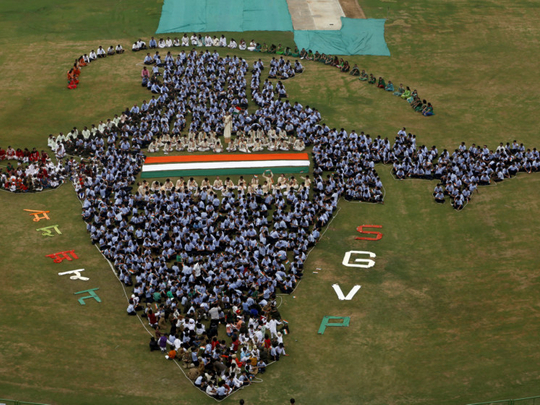
It’s that time of the year when freedom is articulated though the national anthem. The spirit of freedom is not about rights but also of the responsibilities that every Indian citizen should dutifully discharge towards the nation. Independence Day is not just another annual holiday. It must be an occasion to remind ourselves and resolve to be responsible citizens for we have the right to demand but duties to fulfil before that. Freedom is not about exploiting the spoils, but rather about contributing to the collective goals of our society and country.
For a nation celebrating its 68th Independence Day today, the challenges are many and quite profound. The country is hoping to achieve bigger goals but is still pulled down by age-old corruption, poverty, communal or caste bias and few Indians are trying to counter these hurdles on a daily basis.
The government of the day certainly has lot to answer. It rode to power with absolute majority on the age-old promise of change. Until now, little has transpired on the ground. There were many promises of action made by Prime Minister Narendra Modi in his first Independence Day speech, which eventually found their place in the budget. He announced Swachh Bharat (Clean India campaign), Jan Dhan Yojana (money schemes for the masses, JDY), Make in India, Digital India, Skill India, the toilets for schools scheme and Adarsh Gram Yojana (model village scheme) — ideas promising long-term change.
Schemes like JDY are surely an enrolment success but still await operational achievements. NITI Aayog has replaced the Planning Commission but not many within the echelons of power can properly define its functions. The rest is best described as “work in progress”. And progress in India is often derailed by a convergence of corruption, design errors, inadequate capacity and political ineptitude.
To evaluate the proposal in its first year of implementation would earn me lot of criticism from the millions of Modi-bhakts (supporters) all over the world. However, in the short term the government of the day has failed.
The simmering issues of inflation — food inflation still on the steeper side of comfort — safety, security and short-term effect of growth on industry still remain a major challenge. The economy is in the doldrums with some sectors crying out for bailout even as the government claims high growth figures.
Until now, the government has not taken a single political risk in any of its policy decisions and many have started to question Modi’s decisions knowing that his party has a majority in parliament. The people of India, have freed him from tugs and pulls of coalitions and he had a mandate to go and rebuild India. It is far from being realised. Blaming the 44 odd parliamentarians for its inability to legislate is an excuse this young and restless country will not accept.
Corruption and nepotism
It is an untenable excuse that the party that has been able to manoeuvre millions of voters to vote for it cannot handle a few opposition parliamentarians. Isolating the Congress party is again a long-term goal but the country is unwilling to wait.
Women in India are still unsure of their place in society or even on public transport. The cases of horrific rapes, murder have become front-page humdrum where all citizens can do is lament in despair. The government has launched schemes which to its credit will have some impact including the much talked about ‘selfie with daughter’. But in the short term, women are suffering.
Corruption and nepotism are far from over and vitriolic speeches against the Gandhi family by Sushma Swaraj, minister of external affairs inside parliament may earn her the applause of many but does not do justice to the claims of the prime minister “Na Khaunga Na Khane doonga” (will not take a bribe nor will allow anyone to do so). Modi must realise that the Gandhis are sitting in the opposition benches today for allowing corruption during their ten-year rule. Rhetoric will not get anyone success in erasing deeply entrenched corruption.
Though there has been considerable success in its foreign policy, Pakistan is still an issue to which the government has no creative answer. Playing text book politics of not talking will encourage the fringe elements in both the countries and further widen the rift. I have always been a strong advocate of the change that people can bring from within rather than waiting for the government to deliver. Blaming politicians is a national pastime but in the true sense, we are all responsible for the government we get.
Building a progressive and robust India is every citizen’s responsibility. Rather than waiting for our leaders to show us the way we, the citizens, could identify the challenges our country faces whether it is corruption, poverty, communal or caste bias and resolve to tackle them in our own little way. Yes, for a young nation such as ours where the youth are its biggest hope, strength and resource, it is time to stop pointing fingers at the wrongs that abound and lead by example.










